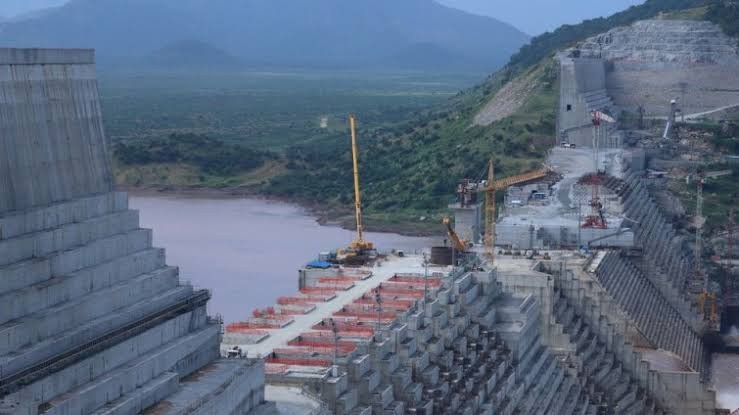Egypt expresses outrage as Ethiopia fills Nile dam reservoir amid ongoing water dispute

Tensions have escalated between Egypt and Ethiopia as the Ethiopian government announced the filling of the reservoir at the highly contentious hydroelectric dam located on the Blue Nile river.
This longstanding dispute between Ethiopia, Egypt, and Sudan over the multi-billion-dollar megaproject, initiated in 2011, has reached a critical juncture. Egypt, which heavily relies on the Nile for almost all of its water requirements, has expressed vehement anger at Ethiopia’s actions.
Egypt’s foreign ministry issued a stern statement, accusing Ethiopia of disregarding the interests of downstream nations, including Egypt. Ethiopia, on the other hand, asserts that the $4.2 billion Grand Ethiopian Renaissance Dam (GERD) will not reduce the share of Nile water available to its neighbors.
Ethiopian Prime Minister Abiy Ahmed made the announcement regarding the successful completion of the fourth and final filling of the GERD, acknowledging the numerous challenges the project has faced, both internally and externally. The dam began producing electricity in February 2022 and is anticipated to play a pivotal role in doubling Ethiopia’s electricity output, thereby aiding development efforts in a nation where half of the 127-million population lacks access to electricity.
The GERD aims to generate over 6,000 megawatts of electricity and is located approximately 30 kilometers (19 miles) from Sudan’s border. However, Egypt and Sudan insist on the necessity of establishing common operational rules for the GERD, as they are concerned that Ethiopia’s energy demands may further exacerbate their existing water shortages.
Negotiations regarding the project, which were suspended in 2021, resumed last month. Meanwhile, Sudan, currently embroiled in conflict between rival factions, has not issued an immediate response to Prime Minister Abiy Ahmed’s announcement.
Egypt, in an official statement on Facebook, condemned Ethiopia’s “unilateral” filling of the reservoir, asserting that it violates a declaration of principles signed by the three countries in 2015. Egypt categorizes Ethiopia’s actions as “illegal” and insists that the declaration of principles mandates the three nations to reach an agreement on the rules for filling and operating the GERD before commencing any filling activities.
Egypt argues that Ethiopia’s unilateral actions disregard the interests and rights of downstream nations, endangering their water security, as protected by principles of international law.







